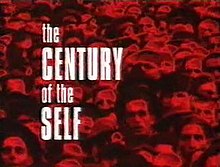TED Video on “Connectivity=Productivity” Growth of Bangladesh Telecom to Allieviate Poverty
01 Poverty, Commerce, Mobile, Technologies, TED Videos, Videos/Movies/DocumentariesIqbal Quadir Creates a Culture of Entrepreneurship in Bangladesh
Why does poverty exist? That's no small question for an individual to ask, but in Iqbal Quadir's homeland, Bangladesh, there may be no other question that matters more.
His answer is twofold: First, European prosperity resulted from the devolution of authorities and the empowerment of citizens, while Western aid to developing countries simply empowered authorities to marginalize the citizenry. Even looking at oil-rich countries, the autocratic regimes grew spectacularly wealthy, while poverty remained entrenched. “Economic development,” Quadir concludes, “is of, by and for the people.” Second, his life experience had demonstrated that connectivity is a powerful weapon against poverty. The ability to communicate eliminates massive and avoidable waste in productivity, which in turn creates greater commerce and economies.
In Bangladesh 12 years ago, only one in 500 people had access to a telephone. “In whole areas where 100 million people lived, there were no telephones,” he says. “Vast amounts of wasted time results. The only way people can depend on each other is to connect to each other, which leads to productivity.” He decided to bring cell phones to them all–although not to each of them individually.
The New York-banker-turned-Bangladeshi-entrepreneur faced the hurdles you would imagine, the most prominent being that poor people could not afford cell phones. But in fine entrepreneurial fashion, Quadir contended, “If a cell phone creates productivity, why would you worry about [people's ability to pay]?” With backing from microbank GrameenBank, Quadir started GrameenPhone, a locally based shared cell phone service. He approached a single woman entrepreneur in each village and provided her with a cell phone. The local woman would lease its access on a per-call basis, making cell phone communication available to more than 52,000 Bangladeshi villages and 80 million people. As for the women entrepreneurs, there are now 115,000 of them within GrameenPhone, each making a profit of $700 a year, far more than the average per capita income of the country.
Thanks to Entrepreneur.com for listing various TED videos
TED Video on “Recovering Plunderer” and “Greenest CEO” Ray Anderson & I = P x A / T2
03 Environmental Degradation, 05 Energy, 07 Health, 12 Water, Commerce, Corporations, Earth Intelligence, Peace Intelligence, TED Videos, Videos/Movies/DocumentariesThe Magnitude of the Entrepreneurial Mission
Ray Anderson and the Business Logic of Sustainability
Thirty-six years ago, Ray Anderson bootstrapped a carpet company called Interface. He maneuvered it though the challenging years, and by the 1990s he was a major player, which also meant he was a preeminent contributor to the take/make/waste production system of the carpet industry. “We were digging up the earth and converting it to pollution,” he says.
Anderson devoted his company to “Mission Zero,” a vow that within five years it would “only take from the earth that which can be replenished by the earth, take not one fresh drop of oil in an oil-intensive industry, and do no harm.” The results: Greenhouse emissions declined 82 percent, fossil fuel use dropped 60 percent, water use declined 77 percent, while sales increased 66 percent and profits doubled. Interface realized $400 million in “avoided costs” in pursuit of zero emissions, which paid for the entire transformation.
Anderson's green business model is classic: Costs come down as innovation–inspired with missionary zeal–goes up, products become better, talent is attracted to your company for its moral and emotional enterprise, and the marketplace perceives the good that you do as reflective of the goods that you make. Most important, Anderson's real-life model presents an irrefutable challenge. As he says, “If something exists, it must be possible.”
I = P x A x T1 is Paul & Anne Erhlich's Environmental Impact Equation where Impact = Population multiplied by Affluence multiplied by Technology. The revised equation is I = P x A / T2.
Thanks to Entrepreneur.com for listing various TED videos
Comment: If you are a CEO, contact Ray Anderson for more information, advice, wisdom, etc.
“The Century of the Self”: Must-See Documentary on Psychology, Advertising, Consumerism and Control
03 Economy, 04 Education, 07 Health, Academia, Civil Society, Commerce, Corporations, Corruption, Ethics, Government, Media, Misinformation & Propaganda, Money, Banks & Concentrated Wealth, Power Behind-the-Scenes/Special Interests, True Cost, Videos/Movies/DocumentariesCentury of the Self (ADAM CURTIS)
DOCUMENTARY DESCRIPTION
Episode 1: Happiness Machine
Episode 2: The Engineering of Consent
Episode 3: There is a Policeman Inside All Our Heads: He Must Be Destroyed
Episode 4: Eight People Sipping Wine in Kettering
CENTURY OF THE SELF asks the deep questions about the roots and methods of consumerism and representative democracy and the implications of the two. The foundation of this documentary is the idea that public relations and politicians have used the theories of Sigmund Freud to engineer a society of consent.
This series is about how those in power have used Freud s theories to try and control the dangerous crowd in an age of mass democracy. Adam Curtis
For more information about this series, visit its Wikipedia page.
Keywords from imdb.com: Propaganda, Public Relations, Consumerism, Capitalism, Media, Advertising
Related:
Documentary – “The Corporation” (full movie in 23 parts at YouTube)
Video on “Technological Disobedience,” Inventing to Survive and Liberate
01 Poverty, Civil Society, Commerce, Technologies, Videos/Movies/DocumentariesThe Technological Disobedience of Ernesto Oroza: In Isolated Cuba, Inventing to Survive
In 1991, Cuba’s economy began to implode. “The Special Period in the Time of Peace” was the government’s euphemism for what was a culmination of 30 years worth of isolation. It began in the 60s, with engineers leaving Cuba for the Unites States, and continues in part today, under the longest trade embargo in modern history.
When Ernesto Oroza, a Cuban-American designer and artist, began studying the technological innovations that have been made during this period, he uncovered a trove of homespun, Frankenstein-like machines that ordinary citizens made for their survival, out of day to day objects. In this episode of Motherboard, we visit Ernesto in Miami to talk about his work and the amazing creations of Cuba’s enterprising DIY inventors.
In the 1970s, a group of scientists and mechanics inspired by Che Guevara formed the National Association of Innovators and Rationalizers (ANIR) as a way of organizing and strengthening this homebrew culture, uniting the ethos of the hacker with the needs of an isolated economy and the call of a socialist revolution. Oroza showed us his meticulous collection of these machines, which he has contextualized as art pieces in a movement he calls “Technological Disobedience.”
Earth Intelligence Network Twitter Feed Links (that were not listed here)
02 Infectious Disease, 04 Inter-State Conflict, 06 Russia, 07 Health, 10 Transnational Crime, Geospatial, Mobile, Technologies, Videos/Movies/Documentaries, Waste (materials, food, etc)
Below are interesting links/stories from our Twitter feed that were not posted to Phi Beta Iota due to time constraints, etc:
- ISP Owner Who Fought FBI Spying Freed From Gag Order
- America discards 40% of the food it makes (2% composted) while a billion go hungry
- Afghan War Interactive Timeline
- Scientists developing cancer breath test
- (video) Crime on the Southwest Border: The FBI partners with Mexican law enforcement and many federal, state, and local
- Mapping Haitian History: An interactive map of Haiti
- Arizona Counter Terrorism Information Center Overview
- President Obama signs into law ban on cell phones in federal prisons
- Latest from Russia: Russian-Fires.ru, the First Ushahidi Experience
- Ramadan goes hi-tech with phone apps to remind the devout to pray
- Social Networks Can Warn of Disease After Disasters
- How Freedom Fone Helped Create Participatory Radio in Africa
Video: MAD AS HELL (by the late Aaron Russo) about a Republic of Corporations, Banking, and the Dying Breed of Individual Freedom
Civil Society, Corporations, Corruption, Government, Media, Money, Banks & Concentrated Wealth, Videos/Movies/DocumentariesThis is the first video part of eleven parts on YouTube. This video (1990's) by the late Aaron Russo earned him a visit from Nicholas Rockefeller around the time Russo was running for governor of Nevada as stated in this video interview before he died in 2007. Part two reveals Russo's commentary on “totalitarianism” disguised as anti-terrorism long before 9/11 with the passage of the Clinton anti-terrorism bill in the 90's.


